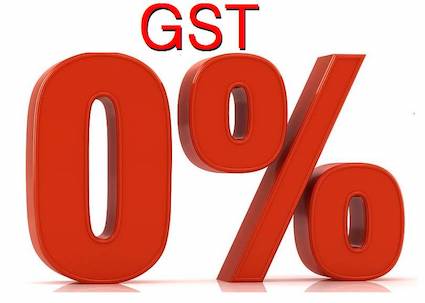No more GST today, petrol prices to remain

RON95 will remain at RM2.20 per litre and diesel at RM2.18 per litre while crude oil price of US$52 (RM207) per barrel is expected to average US$70 (RM278) this year.
(The Star) – Fresh from cutting railway projects amounting to more than RM100bil, the Government announced measures that will put some RM20.7bil into the hands of people to drive the economy.
The primary contributor to increasing the disposable income of ordinary people will come from the lifting of the Goods and Services Tax (GST) starting from today and replacing it with the Sales and Services Tax from Sept 1.
According to Finance Minister Lim Guan Eng, the move will result in RM17bil being released to ordinary Malaysians for the rest of the year.
The Government estimates a further RM3bil will be realised by the people from its move to maintain the price of RON95 at RM2.20 per litre and diesel at RM2.18 per litre.
The Finance Minister said the three measures would provide a significant boost to consumer spending.
“It would lead to improved consumer optimism and business profits,” Lim told a packed press conference yesterday.
Economists said the RM20.7bil consumption boost should trigger an economic multiplier equivalent to about RM35bil into the Malaysian economy.
He dispelled fears that the Federal Government budget deficit would worsen from the projected 2.8% of the gross domestic product (GDP) arising from its measures to put more money in the hands of the people.
“We have taken measures to ensure the budget deficit remains at 2.8%,” said Lim.
Among the measures taken to increase the government coffers is RM10bil cuts in government expenditure from the deferment, review and renegotiations of what is described as “high-price projects”.
Among them is the RM350mil contract that was awarded to carry out the renovation and rehabilitation works of Sultan Abdul Samad building in Kuala Lumpur.
The other areas of cuts in the Government’s expenditure come from non-essential professional and consulting services, refurbishments, events and promotional activities and selected ICT upgrading.
The Federal Government expenditure cuts also include certain allocations set aside for the High-Speed Rail (HSR) and mass rapid transit phase 3 (MRT3) projects, capital injection to various funds and transfers to authorities of the various development corridors.
The cancellation of the HSR and MRT3 projects announced earlier this week would carve out at least RM100bil worth of government spending from the economy.
Lim dispelled fears the Government’s spending would exceed what was projected for the Budget this year and outlined three areas that would see the Government getting additional revenue.
Apart from the RM10bil in savings from cuts in expenditure that would contribute to the coffers, the Government expects to get an additional RM5.4bil in petroleum taxes from the rise in global crude oil prices.
Budget 2018 was prepared with the assumption of crude oil at US$52 (RM207) per barrel.
However, the price of crude oil is expected to average US$70 (RM278) this year.
“The additional revenue (due to higher crude oil prices) will come from extra corporate and petroleum income taxes from oil companies operating in Malaysia,” Lim said.
The other contributors to the Federal Government’s coffers are RM5bil in dividends from government-linked companies, such as Khazanah Nasional Bhd, Bank Negara and Petronas and RM4bil from the implementation of the SST, where revenues are expected to be realised from November onwards.
The net effect on the overall Federal Government budget is an increase in deficit by RM300mil to RM40.1bil.
“It would still maintain the budget deficit at 2.8% of the GDP,” said Lim.
One of the concerns expressed by economists and rating agencies is that the Pakatan Harapan government would discard the discipline in the spending and incur a higher budget deficit from its populist policies, such as the abolishment of GST.
Towards this end, some research houses have estimated the budget deficit to exceed 3%.

